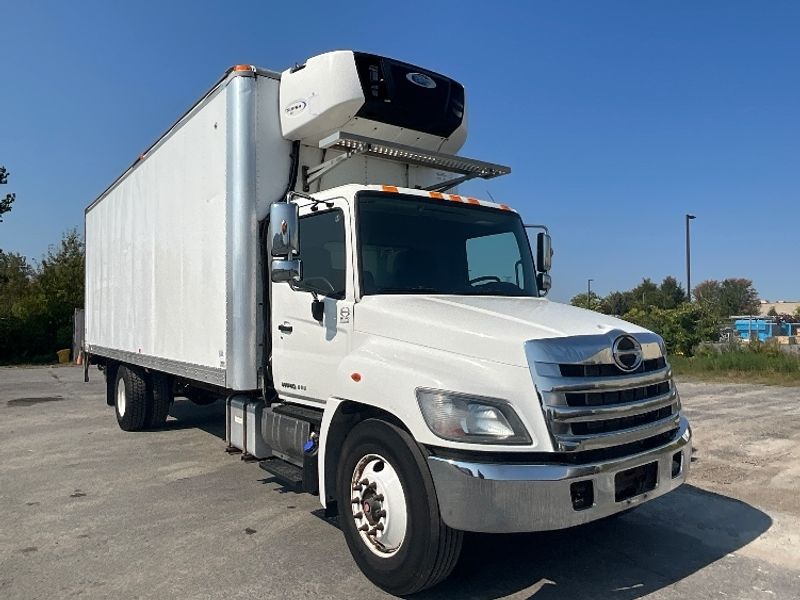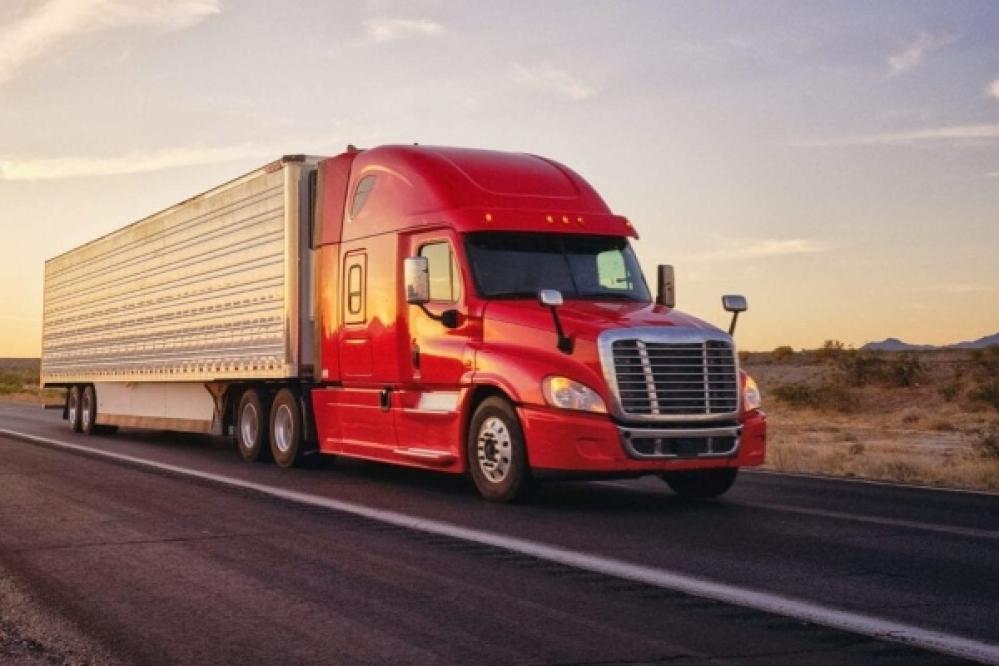Selecting the Right Transportation Refrigeration System for Your Fleet
Picking an appropriate transport refrigeration system for your fleet is a crucial decision that can significantly impact operational efficiency and product honesty. It requires a detailed understanding of your details refrigeration requirements, consisting of temperature level needs and shipment timetables.
Understanding Your Refrigeration Requirements
When picking a transport refrigeration system, comprehending your particular refrigeration requirements is extremely important to guaranteeing product high quality and conformity with industry standards. Different elements have to be considered to figure out one of the most ideal system for your procedure. These consist of the sort of products being carried, their temperature level needs, and the period of transportation.
For perishable goods, such as fresh produce or drugs, precise temperature control is crucial. Comprehending the temperature range needed for each item permits the choice of a system that can keep those conditions regularly. Additionally, consider the regularity of shipments and the distance traveled; longer trips may necessitate systems with enhanced insulation or back-up power choices to stop temperature level variations.

Moreover, the capacity of the refrigeration system need to align with your load size. Overwhelming a device can lead to insufficient cooling, while a large system might be costly and inefficient. Regulatory compliance is important; familiarize yourself with regional and worldwide guidelines regulating the transport of temperature-sensitive products. By completely examining these variables, you can ensure that your chosen transport refrigeration system efficiently satisfies your operational demands and maintains product honesty.
Kinds Of Transportation Refrigeration Systems
Choosing the appropriate kind of transport refrigeration system is important for making sure the risk-free transit of temperature-sensitive goods. There are numerous systems offered, each developed to meet specific demands and applications.
One of the most typical types consist of direct expansion (DX) systems, which make use of cooling agent to take in heat and cool down the cargo area properly. These systems are commonly favored for their efficiency and reduced preliminary costs. An additional alternative is the central refrigeration system, which serves numerous areas or automobiles from a single compressor system. This is particularly valuable for larger fleets calling for consistent temperature level control across numerous transport systems.
Furthermore, there are self-supporting refrigeration units that integrate the compressor and evaporator in one package. When room is limited, these systems are ideal for smaller lorries or. For specialized applications, such as carrying pharmaceuticals or perishables, cryogenic refrigeration systems might be made use of, utilizing fluid nitrogen or co2 to maintain ultra-low temperatures.
Finally, crossbreed refrigeration systems that combine diesel and electrical power are becoming increasingly prominent, using adaptability in power usage and lowering ecological impact. Understanding these various types allows fleet operators to make informed decisions tailored to their specific operational needs.
Key Features to Consider
How can one guarantee that a transport refrigeration system meets all operational requirements? To achieve this, numerous vital attributes have to be meticulously reviewed. Temperature level control is critical; systems need to use exact temperature settings to accommodate numerous items, ranging from frozen goods to perishable products.
Power performance is another essential factor to consider, as it affects operational prices. Try to find systems that use advanced modern technology, such as variable rate compressors, to enhance energy use without jeopardizing performance.
An additional function to assess is the integrity and durability of the tools. Systems created see this from top notch materials and made for durability against harsh problems will lower upkeep expenses and downtime.
Moreover, the convenience of upkeep and availability of elements can significantly affect operational performance (thermo king truck refrigeration). Features like modular layouts or remote monitoring capacities can improve solution procedures
Lastly, compatibility with existing fleet monitoring software application can boost tracking and reporting procedures. By concentrating on these essential attributes, fleet operators can ensure that their transportation refrigeration systems not only satisfy existing demands yet likewise adjust to future needs.

Budgeting for Refrigeration Solutions
Examining essential functions of transport refrigeration systems is only one component of making sure functional performance; budgeting for straight from the source refrigeration remedies is just as essential. A well-structured budget not just incorporates the preliminary acquisition cost however also takes into consideration long-lasting operational prices, consisting of energy consumption, upkeep, and prospective repair work demands.
When developing a spending plan, fleet supervisors must first assess the complete price of ownership (TCO) This includes not just the purchase costs but additionally continuous expenses associated with fuel efficiency and the resilience of the refrigeration devices. Choosing systems with greater energy efficiency scores may produce considerable savings over time, minimizing upfront prices.
Moreover, fleet drivers should make up possible scalability. As companies expand, the refrigeration requires may alter, demanding upgrades or additional systems. Preparation for these future expenditures can prevent monetary pressure.
Funding options can likewise play a crucial function in budgeting. Leasing, financings, or outright purchases each have unique economic implications, and understanding these can assist in making an educated choice. Ultimately, an extensive budget plan that takes into consideration both prompt and future needs guarantees that transportation refrigeration systems add favorably to the total operational efficiency of the fleet.
Maintenance and Support Choices
In the realm of transport refrigeration systems, efficient upkeep and assistance options are crucial for making sure optimum efficiency and longevity. Regular maintenance is necessary to stop failures and keep the integrity of temperature-sensitive cargo. It is recommended to establish a routine assessment timetable with qualified service technicians that can do essential checks and fixings on refrigeration devices.
Support alternatives need to consist of a durable solution arrangement, covering both regular upkeep and emergency situation repair services. This makes sure that your fleet has accessibility to trigger support, lessening downtime and check these guys out keeping functional performance. Many manufacturers offer comprehensive support plans that consist of training for your team, allowing them to do fundamental troubleshooting and maintenance tasks.
Additionally, using remote tracking technology can enhance your upkeep approach - thermo king truck refrigeration units. These systems offer real-time data on temperature level and performance, permitting proactive actions prior to problems escalate. Buying training and technology not just improves your fleet's dependability however also expands the life-span of your refrigeration systems
Eventually, a strategic approach to upkeep and support will certainly guard your investment and ensure that your transportation refrigeration systems operate at peak performance, delivering consistent outcomes for your company.

Conclusion
In verdict, selecting the appropriate transportation refrigeration system for a fleet demands a detailed examination of certain refrigeration requirements, system types, and essential features. Additionally, mindful budgeting and preparation for future scalability will contribute to the long-term success of the refrigeration strategy.
Picking a suitable transport refrigeration system for your fleet is a critical choice that can substantially impact functional efficiency and item honesty.When choosing a transport refrigeration system, recognizing your particular refrigeration needs is extremely important to making sure item high quality and conformity with sector standards. By thoroughly evaluating these variables, you can ensure that your picked transport refrigeration system successfully meets your operational requirements and keeps product integrity.
Inevitably, a comprehensive spending plan that considers both instant and future demands ensures that transport refrigeration systems contribute favorably to the total functional efficiency of the fleet.
In conclusion, choosing the proper transportation refrigeration system for a fleet demands a comprehensive examination of certain refrigeration demands, system kinds, and essential features.
Comments on “Refrigerated Transportation Thermo King: The Ultimate Solution”